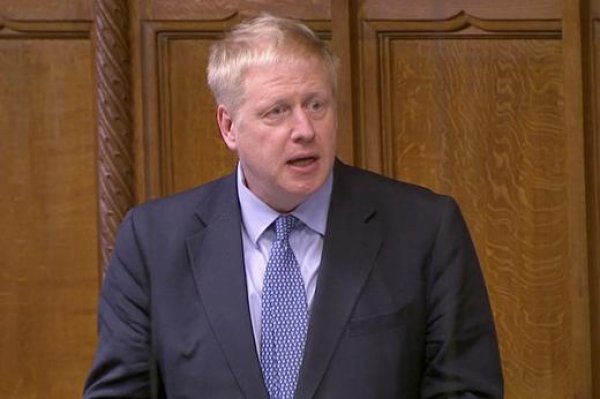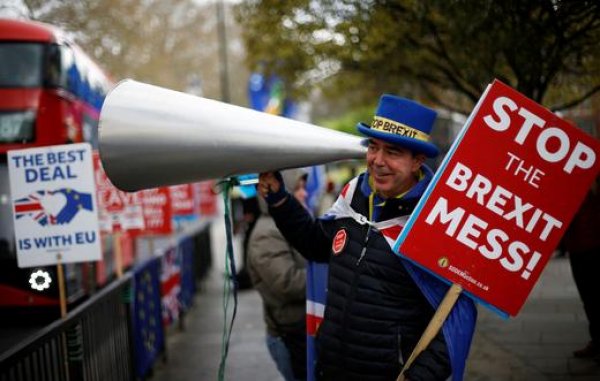A judge will decide next week whether to summon former foreign secretary Boris Johnson to court over a claim made during the 2016 EU referendum.
JOHNSON COULD BE CHALLENGED IN COURT ON BREXIT VOTE CLAIM
The private case was initiated by businessman Marcus Ball, who has accused Johnson of misconduct in public office after he endorsed a claim emblazoned on the side of a bus used by the Vote Leave campaign during the 2016 European Union referendum that the UK sends £350 million each week to the EU. Johnson had campaigned to leave the EU and was regularly pictured standing near the bus.

An initial hearing over the claim was held after Ball was able to raise £200,000 from supporters through crowdfunding and took place at the Westminster Magistrates’ Court. It comes before the submission of an application that will request a summons for Johnson. Ball is being represented by three barristers.

“The court has determined that a public hearing will take place on Thursday 23 May at this court at which the judge will consider the application to issue a summons against the proposed defendant, Mr. Boris Johnson MP, for the alleged offense of misconduct in public office,” Ball’s legal team said in a statement to The Guardian newspaper. “We wish to stress again that Mr. Johnson has not been charged with any criminal offense and is at all times presumed innocent until proven otherwise. We would respectfully ask all those reporting and supporting the case to respect the formality of the court,” it added. Ball spent three years raising funds and preparing the case and has amassed £216,577 from more than 5,900 supporters.
Although Johnson was not present at the hearing, he was represented by his legal team. During the 2016 EU referendum campaign, Johnson along with other prominent Brexit supporting MPs claimed the UK sends £350 million a week to the EU and that if the UK were to leave the EU, that money would be used to fund the National Health Service (NHS). It was unverified, and soon after the UK voted to leave the EU on June 23, 2016, Brexiters denied ever making the claim.













